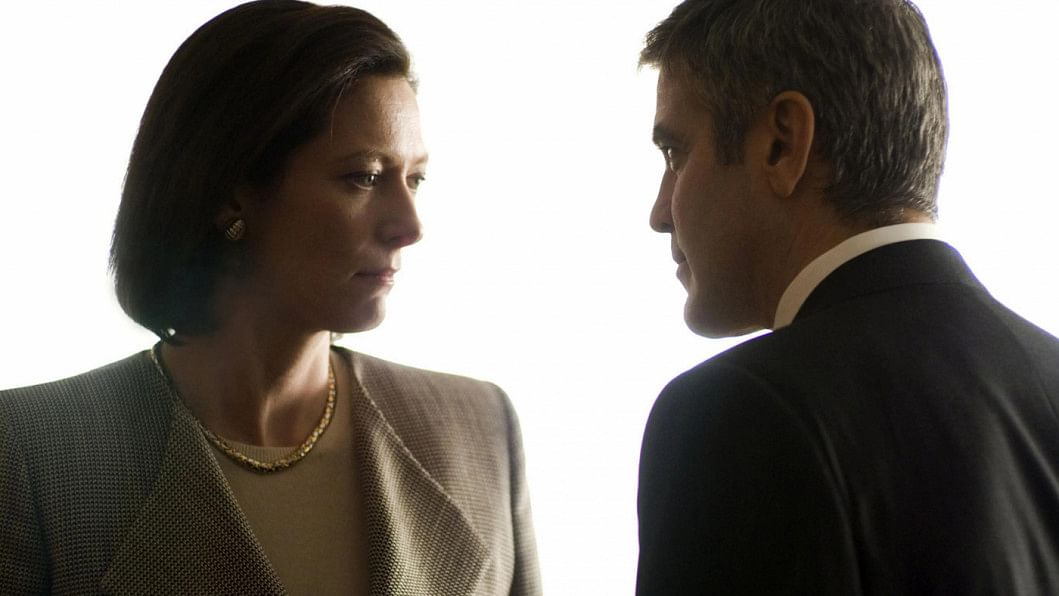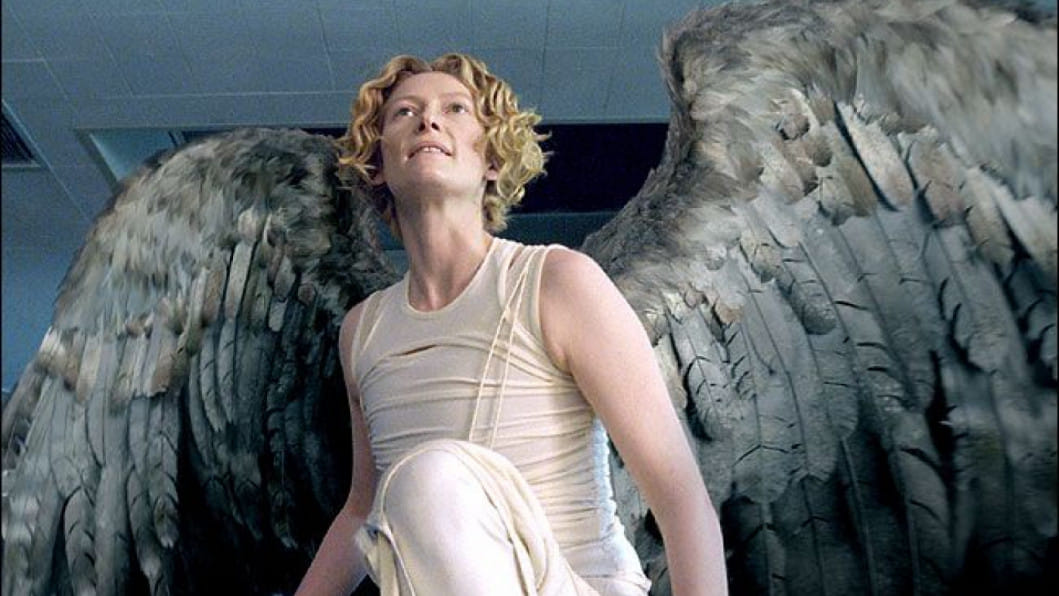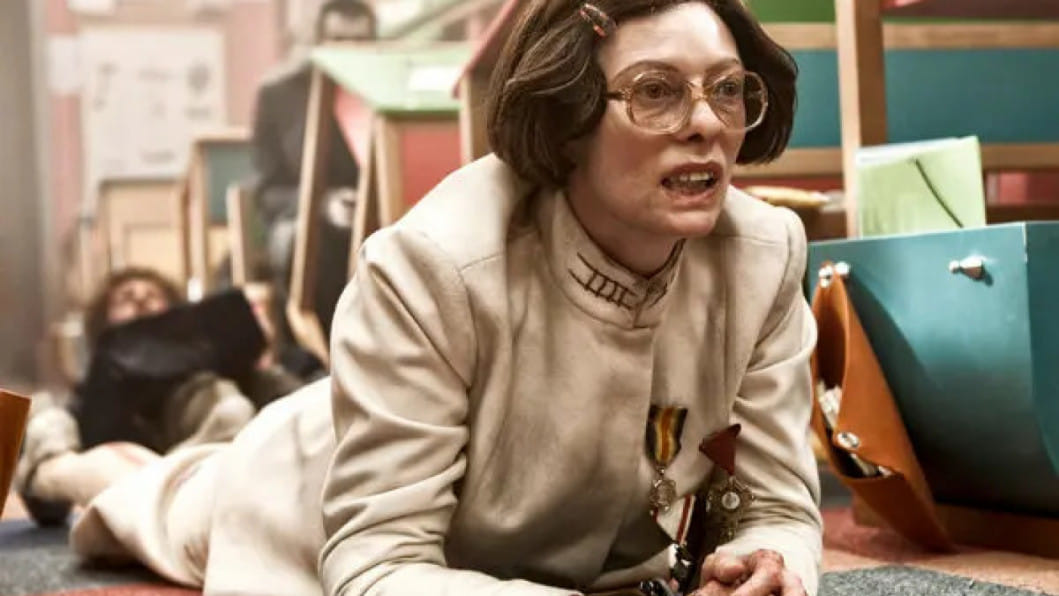Living manifestation of art: Tilda Swinton

Tilda Swinton's name is synonymous with the art of transformation in the world of cinema. Born in London on November 5, 1960, this British actress possesses a rare blend of versatility, artistry, and unwavering dedication to her craft. With her distinctive ethereal appearance and her ability to seamlessly immerse herself in diverse roles, Tilda Swinton has rightfully earned her place as one of the most intriguing and influential figures in the film industry. On the occasion of her birthday today, this is a look at how the actress is a living manifestation of art.
At the Dhaka Lit Fest 2023, I had the privilege of a brief interaction with Tilda Swinton too which left a lasting impression. With humility and grace, I approached her and requested an interview. To my surprise, she kindly declined, explaining that she was there to immerse herself in the world of literature as just another fan of the subject, not as an actress. Her passion for the arts and literature was evident in her words, reinforcing the idea that her dedication to the world of storytelling goes far beyond the silver screen. A speech that she delivered later was a moment that showcased her genuine commitment to the power of words and storytelling in its purest form.
Swinton's early life was steeped in the world of arts and culture. Growing up in a family of artists, her educational journey took her through esteemed institutions such as West Heath Girls' School and Cambridge University. Her background in art history and her deep love for performing were the seeds that would eventually flourish into her successful career in films.

Her acting journey began modestly in the 1980s with small roles in British television dramas and independent films. Yet, it didn't take long for her extraordinary talent to captivate both audiences and filmmakers alike, propelling her into a league of her own. Her early work demonstrated her willingness to embrace unconventional and challenging roles, hinting at the path her career would follow.

What truly sets Tilda Swinton apart is her unparalleled ability to seamlessly blend into her characters. She owns the remarkable gift of becoming the roles she takes on, whether it's the androgynous and ethereal Orlando in Sally Potter's "Orlando" (1992) or the steely corporate attorney in "Michael Clayton" (2007) that earned her an Academy Award for Best Supporting Actress.

Swinton's portrayal of the White Witch in "The Chronicles of Narnia: The Lion, the Witch and the Wardrobe" is a masterclass in character transformation. With her icy demeanour, regal attire, and gracefully eerie presence, she flawlessly embodies the white witch. Her capacity to effortlessly transition from an alluring, enchanting facade to a chilling, ruthless antagonist is a testament to her versatility as an actress.

In the supernatural thriller "Constantine", Tilda Swinton brings to life the enigmatic androgynous angel Gabriel. Her role in this film, directed by Francis Lawrence, showcases her willingness to embrace diverse and unconventional characters. Her portrayal of an angel who questions the divine order and forms an uneasy alliance with the titular character, John Constantine, played by Keanu Reeves, is both haunting and brilliant. Swinton's ability to convey an otherworldly presence and ambiguity adds a unique dimension to the film.

In the contemplative film "Memoria", directed by Apichatpong Weerasethakul, Tilda Swinton takes on the role of Jessica, a Scottish woman experiencing mysterious auditory phenomena during her visit to Colombia. The film delves into themes of memory, perception, and the unexplained. It stands out from mainstream cinema due to its deliberate pacing and pensive narrative. Swinton's performance is profoundly introspective, effectively conveying the senses of wonder, curiosity, and disorientation her character experiences throughout the film. Her ability to fully immerse herself in a role that demands subtlety and introspection underscores her versatility as an actress and her commitment to challenging and unconventional projects.

The actress' dedication to her craft is truly admirable. She often collaborates closely with directors like Luca Guadagnino and Jim Jarmusch, forming dynamic creative partnerships that result in exceptional films. Her striking physical appearance serves as a canvas that she skillfully employs to illustrate a diverse range of characters, rendering herself virtually unrecognizable from one role to the next.

Two of Swinton's celebrated collaborations are with director Bong Joon-ho in "Snowpiercer" (2013) and "Okja" (2017). Her willingness to embrace eccentric and whimsically dressed characters demonstrates her fearlessness in storytelling. Whether portraying the icy and cruel Minister Mason or the quirky, environmentally conscious Lucy Mirando, Swinton's ability to fully embrace the idiosyncrasies of her roles is nothing short of remarkable.
Swinton's impact on cinema extends beyond her acting prowess. She is a strong advocate for independent and art house films. Her involvement in projects like the film adaptation of Lionel Shriver's novel "We Need to Talk About Kevin" in 2011 underscores her commitment to exploring dark and thought-provoking themes that require addressing.
Tilda Swinton is more than just an actress; she is a living work of art. Her choices in roles, her unwavering commitment to character transformation, and her support for independent cinema exemplify her as a true visionary in the film industry. Her work serves as a testament to the power of artistic expression and the limitless potential of storytelling in cinema. In an industry often constrained by typecasting and conventions, Swinton stands as an icon of creative freedom and fearlessness. Her dedication to her craft and her ability to push the boundaries of the impossible on-screen make her a unique and influential force in cinema, and her legacy is certain to endure for generations to come.

 For all latest news, follow The Daily Star's Google News channel.
For all latest news, follow The Daily Star's Google News channel. 









Comments